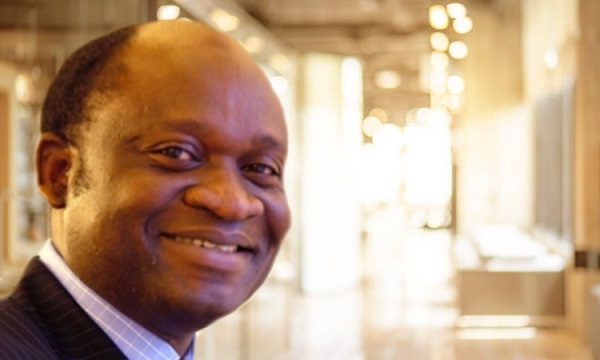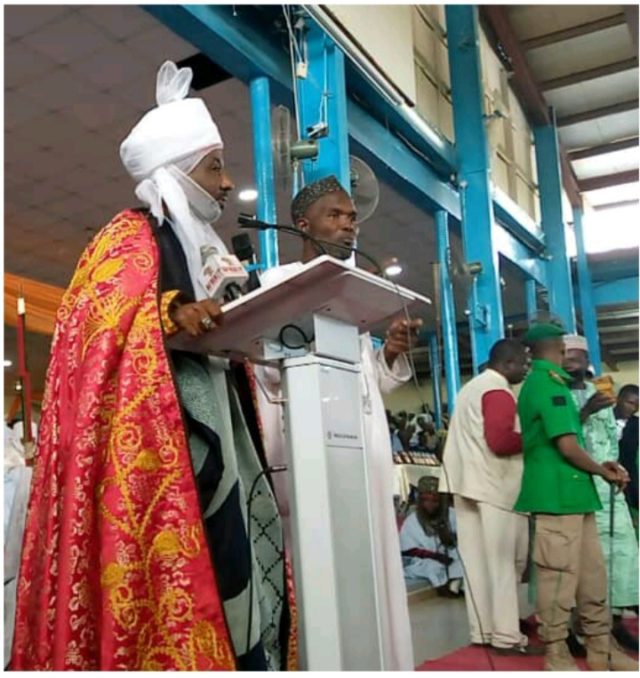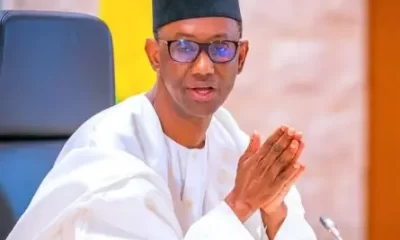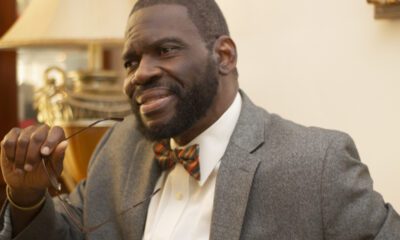National Issues
Restructuring: Emir Sanusi Misspoke On Regionalism, Parliamentary System -By Olu Fasan
In the interview, Sanusi rejected regionalism and the parliamentary system. But then, went on to say: “We had a regional system in the First Republic. How did it end? We had a parliamentary system in the First Republic. How did it end?”

There are two forces contending for the future of Nigeria. One is the force of change and progress. The other is the force of conservatism and status quo. The former argues that Nigeria’s political and governance structure is deeply flawed and not working, and that Nigeria must be restructured to make progress.
The latter posits that there’s nothing wrong with Nigeria’s structure; so, there’s nothing to restructure. If anything, it submits, what Nigeria needs is good leadership, as if there is any serious country that puts its faith solely in the goodness of a leader and not in the robustness of its institutions, particularly the constitution, which is the central determinant of how a country is governed.

Unfortunately, because Nigeria has, so far, not been restructured, it seems that the forces of conservatism and status quo are winning. But that won’t happen unless the forces of change and progress surrender. Truth is, all over the world, a time comes in any country when, if progressive forces do not relent, reactionary forces will acknowledge the hopelessness of their position, and its non-correspondence with reality.
Take the United Kingdom. The patron saint of traditionalist conservativism was Edmund Burke, the eighteenth-century politician and philosopher who favoured institutional stasis. But today, the UK has undergone significant restructuring. For instance, whereas power was once centralised and concentrated in Westminster, there have been, since 1997, devolved governments in Scotland, Wales and Northern Ireland, with separate legislatures and executives – something unimaginable about 30 years ago. Furthermore, power has been devolved to the regions through big city mayors. Interestingly, some of these changes, dubbed “devolution revolution”, have taken place under governments led by the Conservative Party – the party of Burke!
So, here’s the point. The forces of conservatism and status quo must not have the final say on the future of Nigeria. The forces of change and progress must not relent. Thus, this column has long addressed the subject of restructuring, including the merits of regionalism and the parliamentary system. Here, I’m addressing the subject again after reading the interview granted by the beleaguered Emir of Kano, Sanusi Lamido Sanusi, published by this newspaper, titled “Regionalism, parliamentary system not solutions for Nigeria – Emir of Kano, Sanusi” (Vanguard, June 14, 2024).
To be sure, Emir Sanusi, recently reinstalled by the Kano State government but later removed by a Federal High Court, a matter ultimately for the Supreme Court, is an intrepid traditional ruler who speaks his mind. While that outspokenness often got him into trouble with the political authorities, it is a welcome contribution to public discourse. Indeed, that’s what Socrates advocated: change through reasoned thought. However, that dialectical process, that Socratic method of analysis, is undermined when it is based on fallacies and distortions.
For that reason, I found Emir Sanusi’s recent intervention on regionalism and the parliamentary system misguided, not because he disagreed with the two modes of governance but because he rested his argument on flawed premises. In the interview, Sanusi rejected regionalism and the parliamentary system. But then, went on to say: “We had a regional system in the First Republic. How did it end? We had a parliamentary system in the First Republic. How did it end?”
Recently, Vice President Kashim Shettima, who once uncouthly said “restructuring my foot”, and former Governor Babatunde Fashola, the self-regarding sage, made similar points when rejecting calls for Nigeria’s return to regionalism and the parliamentary system. For instance, Fashola said: “Let’s think deeply about why the parliamentary system failed in the First Republic. Have we overcome those reasons.”
To say the least, I’m deeply appalled whenever someone who opposes regionalism and the parliamentary system says both systems failed in the First Republic. If the 1966 coup is the test of the “failure”, what about the 1983 coup that derailed the presidential system under President Shagari? If the Western Region’s post-election violence in 1965 is a test of the “failure”, what about the post-election bloodbath in Ondo State in 1983 following the gubernatorial contest between Adekunle Ajasin and Akin Omoboriowo? Was that not under a presidential system? What about the 900 people massacred in the North when General Buhari rejected the result of the 2011 presidential election? It is utterly misguided and disingenuous for anyone to reject regionalism and the parliamentary system by arguing that they failed in the First Republic.
Strangely, Emir Sanusi asked: “Is there any documentary evidence that the systems were fundamentally better than what we have now?” Really? Can he compare economic development and standards of living under the three or four regions with economic development and standards of living under today’s 36 states? Is there any university created by any of the 36 states that can match the one created by any of the three regions, namely: Ahmadu Bello University (North), University of Nigeria, Nsukka (East) or University of Ife (West), even before they were acquired by the Federal Government?
As Professor Chris Brown argues in the book Political Restructuring in Europe, any political structure that doesn’t work for the people lacks functional and ethical bases to exist. Are Nigeria and Nigerians better off under 25 years of multiplicity of states and the presidential system than under six years of regionalism and the parliamentary system? Of course not. The burdensome presidential system and the fragmentation of Nigeria into mostly technically bankrupt states are simply not working for Nigeria and Nigerians.
In his book, The End of British Colonial Rule, James Hubbard said that when Britain granted self-government to Western Region and Eastern Region in 1954, its expectation was that they would fail so that it “could reassert control within 18 months”. But the West and the East succeeded spectacularly so much so that Britain cited their success as one of the reasons it was confident to grant independence to Nigeria.
Of course, leadership was critical: Chief Obafemi Awolowo and Dr Nnamdi Azikiwe were exemplary and visionary leaders. But the governance structure that allowed them to exploit their region’s comparative advantage and economy of scale and to develop at their own pace was also critical to the success of the regions. How many of Nigeria’s 36 states, most of which are equivalents of local governments in serious countries, can achieve that feat?
Recently, Rotimi Adebari, a former Mayor of Portlaoise in the Republic of Ireland, said that “selfish” politicians opposed Nigeria’s return to regionalism and parliamentarism because they feared losing power under both systems. He’s right. Sadly, Sanusi’s ill-informed intervention fuelled that self-interested politics. He misspoke!










